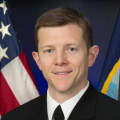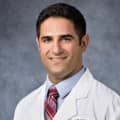An injured lateral collateral ligament (LCL) of the knee can usually be treated with at-home and nonsurgical options.
In This Article:
- Lateral Collateral Ligament (LCL) Injuries
- Symptoms of LCL (Lateral Collateral Ligament) Tears
- Lateral Collateral Ligament (LCL): Causes and Risk Factors
- Diagnosing Lateral Collateral Ligament (LCL) Tears
- Nonsurgical Treatment for LCL (Lateral Collateral Ligament) Tears
- Surgical Treatment for LCL (Lateral Collateral Ligament) Tears
Immediately following the injury, the RICE method is recommended:
- Rest. Activities that cause knee pain, such as running or walking for long periods of time, should be avoided until pain and swelling goes away. The activity that caused the injury should be avoided until fully recovered.
- Ice. A person may wish to to apply ice packs to the area to help reduce pain and swelling. Ice packs can be applied several times throughout the day for about 10 to 20 minutes at a time.
- Compression. Swelling can be managed by wearing an elastic bandage around the affected knee.
- Elevation. Keeping the knee elevated and supported above the waist—for example, sitting in a recliner or lying down with the knee propped up on pillows—may help with swelling.
See The P.R.I.C.E. Protocol Principles
Some people may also use a splint or crutches immediately following the injury.
Additional nonsurgical treatment options include:
- Taking non-steroidal anti-inflammatory drugs (NSAIDs), such as ibuprofen (Advil) or naproxen (Aleve), which can help reduce pain and swelling and improve mobility.
- Wearing a knee brace, which provides stability and restricts side-to-side knee movement. A functional sports knee brace that allows for more movement may be recommended when a person returns to activity.
- Working with a physical therapist, who can help restore the knee’s range of motion and increase its strength.
Recovery time using nonsurgical treatment options can range from a few days to several weeks, depending on the severity of the injury.
Platelet Rich Plasma Treatment

PRP uses the patient's blood to repair damaged tissues like cartilage, tendons, ligaments, and muscles.
Regenerative medicine, such as platelet-rich plasma (PRP) treatment, may be recommended to certain individuals with LCL tears, especially high-level athletes who wish to return to competition. PRP may be injected or applied directly during surgery, however, there is little clinical evidence on whether or not these treatments improve results.
See Types of Regenerative Medicine for Sports Injuries
If a person has a grade III LCL tear or multiple ligament injuries, or has not healed even after all nonsurgical treatments have been exhausted, surgery may be recommended.


